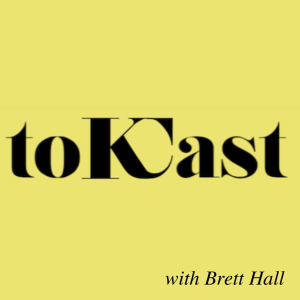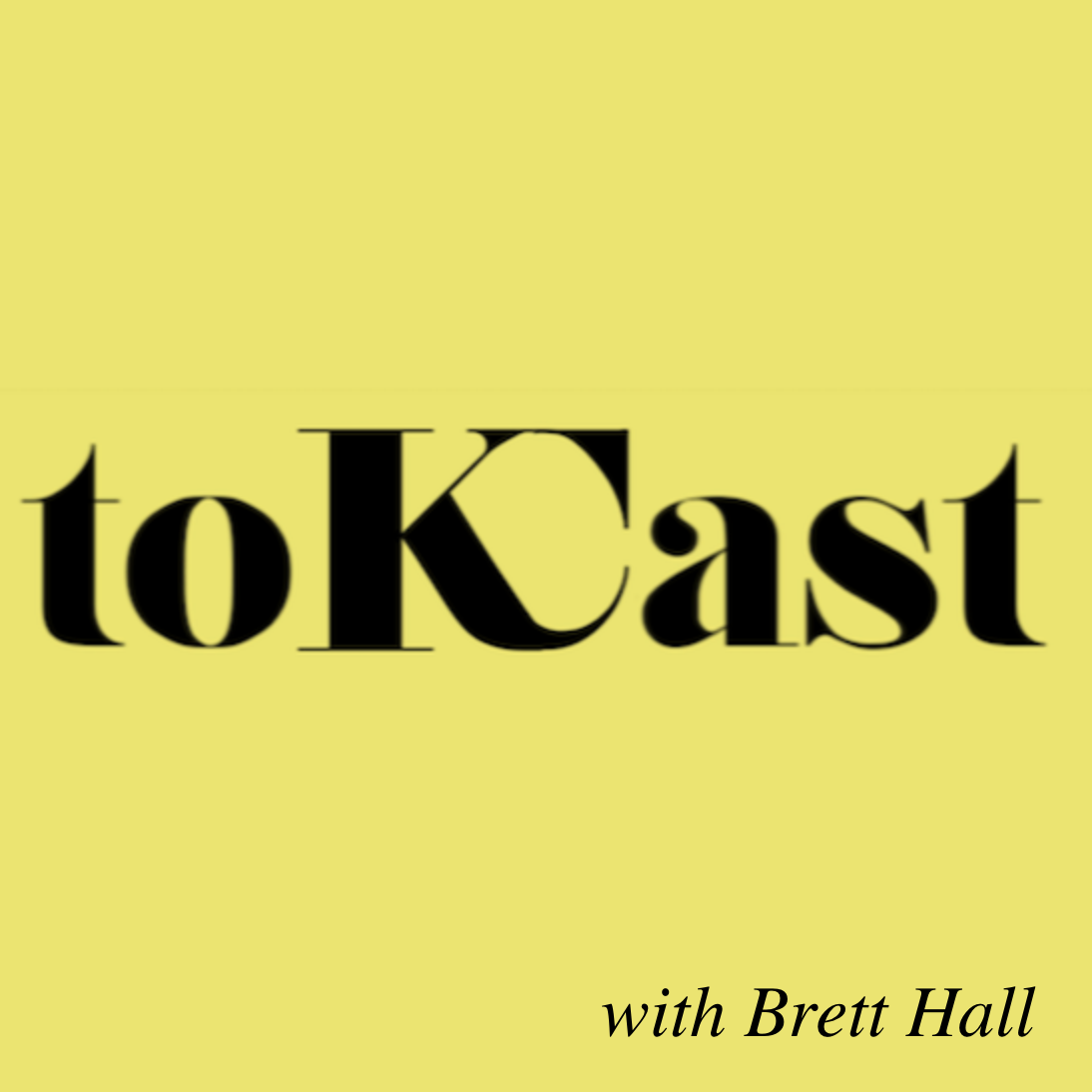Episodes
Episodes



Wednesday Jul 26, 2023
Wednesday Jul 26, 2023
This is a "return to regular format" episode in one respect - readings from and reflections upon "The Fabric of Reality" but also a departure from regular formatting in another respect: I teach a bunch of simple mathematics. This is for those who might think "quantum computation" and "quantum algorithms" will be forever beyond me. They are not! I begin with (quite literally) primary school mathematics level stuff (what's a prime number, what is the "fundamental theorem of arithmetic") and very gradually move up into algebra and some modular arithmetic and present examples using real numbers of what the problem is and then lead us to a place where we can glimpse the solution (which is Shor's Algorithm). I do not promise to bring the listener to a graduate quantum physics-degree-level of proficiency in quantum information theory and cryptography - but you will gain quite some insight. I refer to the following more in-depth expositions of all this and hopefully bridge the gap I think is there between "I know a little bit of maths and physics" and the kind of thing the following more "high level" videos offer (which I present in order of increasing technical difficulty) 1. The PBS Infinite Series on all this stuff is brilliant. In particular this introduction: • How to Break Cryp... and this video focussed more narrowly on Shor's algorithm: • Hacking at Quantu... 2. Here is Peter Shor himself explaining the history of his work: • The Story of Shor... 3. Artur Ekert's graduate level free online course on Quantum Information Theory: https://www.youtube.com/@ArturEkert/v... in particular his lecture focussed on Shor's Algorithm: • IQIS Lecture 6.9 ... (which, aside from "The Fabric of Reality" itself, served as the basis for this episode).



Tuesday Jul 18, 2023
Ep 193: Effortless Stoicism
Tuesday Jul 18, 2023
Tuesday Jul 18, 2023
I recommend the version found here that contains visuals and music: https://www.youtube.com/watch?v=mlvgxEBekP4
However the same message will come through on this audio only podcast.
Full Credit for all ideas to:
James (Jim) Pierce
Naval and Nivi
and
David Deutsch
With mistakes all my own
See also James' website (and relevant article) here: https://www.james-pierce.com/writings/effortless-stoicism
His instagram account including the original "Effortless Stoicism" video here: https://www.instagram.com/p/CuuDzL9sKOG/
His Twitter and relevant thread here: https://twitter.com/jimmpierce/status/1190810962493788160?s=20
Naval and Nivi's work on "How to get rich" where you can download their podcast from Naval's website here: https://nav.al/rich
Or the Youtube version: https://www.youtube.com/watch?v=1-TZqOsVCNM
See also Akira The Don's outstanding magical version along with other original music featuring Naval here: https://www.youtube.com/playlist?list=OLAK5uy_nX7x9AzwUTaGMFNVAxrLNXUJrKFotQ84Y
And my new favorite Naval/Nivi/Akira song here: https://www.meaningwave.com/blogs/meaningwave/akira-the-don-naval-ravikant-ft-nivi-you-will-need-to-rent-your-time-to-get-started-single



Thursday Jun 29, 2023
Ep 192: Where do ideas come from?
Thursday Jun 29, 2023
Thursday Jun 29, 2023
This is a cross-post from my Substack podcast "The 3Rs: Reality, Reason, Rationality" the text of which can be found here: https://bretthall.substack.com/p/where-do-ideas-come-from?sd=pf#details
This diagram is also relevant:



Friday Jun 16, 2023
Ep 191: Science News 2: Dark Matter, Fusion, JWST Latest
Friday Jun 16, 2023
Friday Jun 16, 2023
Science news from a "critical rational" perspective. No "believing" in explanations here, no time for instrumentalism and a focus on good explanations of the evidence.
Introduction (epistemology in science): 00:00
Dark Matter: 04:32
Modified Newtonian Dynamics (MOND): 08:12
Statistical confidence in physics: 15:23
Instrumentalism in modern physics: 19:00
Fusion Power 'News': 22:09
"Spinoffs" from fusion research: 24:56
Advice for investors in pure science: 28:26
James Webb Space Telescope latest: 31:59
Concluding Remarks: 37:42



Tuesday Jun 13, 2023
Tuesday Jun 13, 2023
Here in this second-to-last episode on the discussion of Chapter 9 from the Fabric of Reality we discuss some of the key distinctions between the classical and quantum - the philosophical and scientific implications and then some of the current experimental approaches to (and reporting on) the actual engineering of these devices.



Wednesday Apr 26, 2023
Ep 189: Epiphenomena
Wednesday Apr 26, 2023
Wednesday Apr 26, 2023
This serves as "part 2" of my "Are Consciousness and Creativity the same thing?" podcast, the Youtube version of which can be found here: https://www.youtube.com/watch?v=lrjY4fR-qMU



Friday Apr 21, 2023
Ep 188: Nick Bostrom on AI on ”Talk TV” - analysis
Friday Apr 21, 2023
Friday Apr 21, 2023
This podcast was originally produced on Airchat: https://www.getairchat.com/bretthall/bretthall It is all about an interview that can be found here: https://www.youtube.com/watch?v=4fv4Uz_i1iQ



Friday Apr 14, 2023
Ep 187: Red Pens and Fallibilism
Friday Apr 14, 2023
Friday Apr 14, 2023
This podcast episode is based around two sets of chits (two "chats") found on airchat at https://www.getairchat.com/bretthall/bretthall?t=440630 The articles associated with these chits and in the latter case many links are here:
https://www.bretthall.org/blog/the-white-swan-and-red-pen and here:
https://www.bretthall.org/blog/the-problem-with-fallibilism



Saturday Apr 08, 2023
Ep 186: Brett, Naval and more on AI & AGI
Saturday Apr 08, 2023
Saturday Apr 08, 2023
The latest on the philosophy, science and technology of AI and AGI. ChatGPT, Deep Learning, Neural Networks and Large Language Models (LLMs). What do we know? Where is it going?



Friday Mar 31, 2023
Ep 185: Possibility and Actuality. Facts and Counterfactuals.
Friday Mar 31, 2023
Friday Mar 31, 2023
Sam Harris and Lex Fridman vs The Multiverse and Constructor Theory. Although this is a reaction video, it's just 10 minutes of Sam with the rest of the time spent me doing some analysis, dissection and "what went wrong" reflection as a vehicle for explaining certain parts of physics and philosophy.



Wednesday Mar 29, 2023
Ep 184: ToKCast Digest - An Overview of Optimism
Wednesday Mar 29, 2023
Wednesday Mar 29, 2023
Everything that we’ve covered on ToKCast so far for those in a hurry or those wanting a refresher. It’s the synecdoche episode. 183 episodes down and David Deutsch has spoken with Naval Ravikant and Tim Ferris, and so begins another cohort of people - a new generation if you like - of people coming to optimism in Deutsch's sense and the infinite potential of people and explanatory knowledge. I begin with some reflections on David’s appearance on The Tim Ferris show. If you watch no other ToKCast episodes or don't have the time for complete commitment - this is the one for you.
ToKCast is now ranked in the top 1% of podcasts worldwide according to "Listen Notes". https://lnns.co/AwGLfoTRgHZ
Thankyou to all listeners and especially all supporters. You can support ToKCast by following the links here to Patreon or Paypal: https://www.bretthall.org/



Wednesday Mar 22, 2023
Ep 183: St George in retirement syndrome on St Patrick’s day.
Wednesday Mar 22, 2023
Wednesday Mar 22, 2023
What is "St George in retirement" syndrome? This and much more in another random livestream about all sorts.



Friday Mar 17, 2023
Ep 182: Livestream Science News and AMA
Friday Mar 17, 2023
Friday Mar 17, 2023
Thursday 16 March 2023 Livestream - Patreon and Twitter Questions and Science News Articles discussed: JWST news: https://www.space.com/james-webb-space-telescope-star-soon-go-supernova-photos Volcanoes on Venus: https://www.forbes.com/sites/jamiecartereurope/2023/03/15/venus-is-volcanically-active-right-now-say-scientists-using-32-year-old-images/?sh=7e868b8fd11f Plagues in Africa killing amphibian: https://www.forbes.com/sites/roberthart/2023/03/15/a-skin-eating-fungal-plague-is-silently-tearing-through-wildlife-across-africa-scientists-warn/?sh=3086d9573f02 ChatGPT4: https://www.forbes.com/sites/gabrielasilva/2023/03/14/the-chatgpt-debate-are-we-intelligent-enough-to-understand-intelligence/?sh=2246e1c684f2



Thursday Mar 16, 2023
Ep 181: The Big Bang Livestream ToKCast
Thursday Mar 16, 2023
Thursday Mar 16, 2023
Reading a short chapter from "What's Eating the Universe?" by Paul Davies titled "The Big Bang" - and adding some exposition and commentary. Also: AMA as time permits. As always I do not monetise anything (there are no ads/I get zero income from youtube) - but if you'd like to support me just go to www.bretthall.org and follow the links to donate. Also the "superchat" feature in Youtube is something that would get to me.



Wednesday Mar 15, 2023
Ep 180: Livestream: ”The Open Hand of Reason”
Wednesday Mar 15, 2023
Wednesday Mar 15, 2023
Defending reason and rationality via a discussion of material at https://www.ecosophia.net/blogs-and-essays/the-well-of-galabes/the-clenched-fist-of-reason/ after a question from a listener.



Tuesday Mar 14, 2023
Ep 179: Livestream March 14, 2023
Tuesday Mar 14, 2023
Tuesday Mar 14, 2023
I did a livestream on Youtube and this is the audio taken from that. Questions were taken from Twitter and Youtube. The first 20 mins or so of this episode is a response to a question about Sam Harris' recent "Making Sense" podcast featuring Stuart Russell and Gary Marcus called "The Trouble with AI". Then there are questions from all over the place :)



Friday Mar 10, 2023
Ep 178: Its, Bits, Qubits *Part 2*
Friday Mar 10, 2023
Friday Mar 10, 2023
This is the second part of a two part series. Here we focus exclusively upon "It from Qubit" (2002) by David Deutsch as found here: https://www.daviddeutsch.org.uk/wp-co... I read and comment upon the paper, unpacking its significance for physics, epistemology (i.e: the search for good explanations), metaphysics (ultimate reality beyond what science tells us) and compare this vision of reality to alternatives (for example as presented in the "It from Bit" thesis by Wheeler. The Simulator Hypothesis makes an appearance as does some of the mechanics behind quantum computation itself. But, overall, this is a work stranding physics and philosophy namely: what the former can tell us about having an informed explanation of the latter. To that end both Einstein and Popper are quoted by Deutsch herein.



Thursday Mar 09, 2023
Ep 177: Its, Bits, Qubits. Part 1
Thursday Mar 09, 2023
Thursday Mar 09, 2023
This is the first in a two part series unpacking, breaking down, reading, reflecting and commenting upon David Deutsch’s paper “It from Qubit” available here: https://www.daviddeutsch.org.uk/wp-content/ItFromQubit.pdf or here https://philpapers.org/rec/DEUIFQ or even as the chapter of a Barrow and Davies book here: https://www.cambridge.org/core/books/abs/science-and-ultimate-reality/it-from-qubit/BA7B507C25C37B180FC34802555D4423 I will be referring to the Chapter of the book (that matters as you will hear!). This, the first part, lays the groundwork for discussing “It from Qubit” by first discussing the thesis that went before, coined and explained by John Wheeler: It from Bit. Wheeler, as you will hear in this episode, had an absolutely astonishing “life in physics”. Here we discuss that man, his view and the science and philosophy of “It from Bit”. As a teaser recognise that Wheeler supervised both Richard Feynman and Hugh Everett, collaborated with Einstein and Bohr and is named as one of the two biggest professional influences upon David Deutsch by David Deutsch (references herein).



Monday Mar 06, 2023
Monday Mar 06, 2023
Here we discuss the inherent differences between classical and quantum physics. Systems representing both can exhibit "unpredictable" behaviour - so what is the difference? In classical physics chaos theory is a genuine phenomena - but only in theory. The real world does not obey classical physics. It obeys quantum theory and there, that kind of "chaos" simply does not happen. The Butterfly effect is therefore false in reality for reasons explained herein. Those classical effects cause classical systems to be unpredictable due to the sensitivity of systems to initial conditions which cannot be specified, or known, with perfect precision. But quantum systems can be "intractable" making them unpredictable for different reasons. Rather than being a barrier to knowledge and computation this is an opportunity. We discuss Feynman and then Deutsch's own contribution to the field of quantum computation.



Saturday Mar 04, 2023
Saturday Mar 04, 2023
I strongly recommend this episode be watched on Youtube at https://www.youtube.com/watch?v=r15jeZaNBHs However audio only listeners should still be able to follow along.
This, the first in a new series is "science news" from a critically empiricist and rationalist perspective. Have the first generation of stars - usually known as Population III stars, been observed by the James Webb Space Telescope? More background and context than you can poke a spectroscope at.








